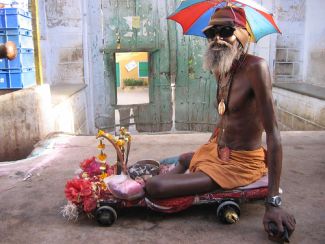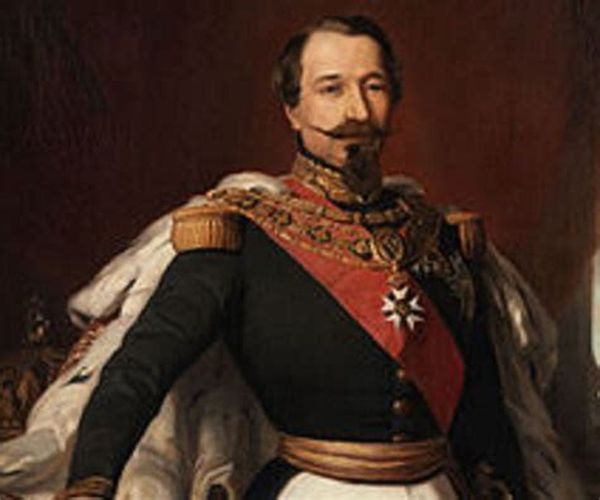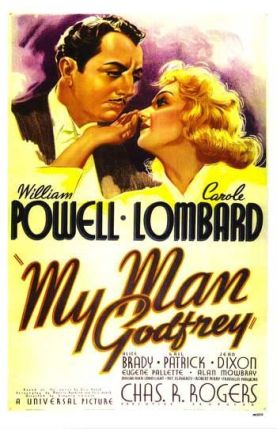The World’s Greatest Blowhards
From The New CriterionA Great Pandit
The other day The Washington Post sent me an e-mail to announce — as I write it’s also being touted on the website — a second round of what it is pleased to call its “America’s Next Great Pundit” contest. “The Washington Post often receives thoughtful and timely analysis of issues of the day from our readers through comments, e-mails, letters to the editor and op-ed submissions,” it read. “As a regular reader now is YOUR chance to take your persuasive skills and compete for an opportunity to write for The Washington Post and launch your opinionating career.
My opinionating career? Gosh, I can hardly wait. My chance as a regular reader is to point out that if the judges can’t write any better English than this, how will they know if the contestants can? I can’t remember now who won the first round of this competition. Ken somebody? Kevin? Keith? No, it’s gone. I might recognize the name if I heard it. But a year or two ago he — I’m pretty sure it was a dude — was the last man standing among a miscellaneous crew of bloggers and other riff-raff to submit their best stuff to the editors of the existing great pundits of the Post’s op ed page in hopes of being judged as fit to join the Pantheon.
Washington Post editors will pick the top 50 entries. Then, our readers will vote to help us narrow the field to ten finalists. Those ten finalists will face off in challenges that test the skills a modern pundit must possess. They’ll have to write on deadline, hold their own on video and field questions from Post readers. After each round, a panel of Post personalities and readers will help to determine who gets another chance at a byline and who has to shut down their laptops.
That last clause is obviously intended as a light-hearted flourish — who ever shuts down their laptops merely on account of being unrecognized and undistinguished? — but I don’t think it suggests the sense of irony that, if there could be such a thing as a “great pundit,” he or she would have to blessed with.
For that would have to be a sufficient sense of irony to recognize that the title of “America’s Next Great Pundit” could only be a mockery of distinction. “Pundit” — originally the Sanskrit word pandit, a title of respect given to a Hindu scholar or holy man, like rabbi, master or doctor in the West — is one of those words, like “maestro,” that can only be used ironically in today’s vernacular. In the same way, as Jemima Lewis observes in the (London) Daily Telegraph of its alleged return to fashion on the handsome noggin of film star Jude Law, it is no longer possible to wear the classic British bowler hat except “with heavy irony.” The difference between “maestro,” or the gent’s bowler — or, for that matter, the very idea of a gent — and “pundit” is that the last has been ironic from its first entry into the language in the mid-19th century.
It’s not as if those Washington Post editors could plead on behalf of their ludicrous contest that they hadn’t heard calling someone a pundit was no longer complimentary. It never was. What the title necessarily implies about its holder is that he or she possesses not wisdom or sagacity so much as the pretense of these things — and this pretentiousness is signified about the person or his profession before it signifies him. To be a pundit is to be, willy nilly, a poseur, someone wishing to clothe his opinions — less than ten a penny in any of the burgeoning electronic marketplaces for such items these days — and obiter dicta in the loin-cloth of the wise man, though both he and his readers know that tomorrow they will useful only for wrapping the fish, lining the bird’s cage or lighting the fire. In other words, to anyone with a normally developed sense of moral proportion, being called “America’s Next Great Pundit” would be the equivalent of being called “America’s Next Great Blowhard.”
Greatness of any kind, even journalistic greatness — which, though rare enough, really does exist — is incompatible with punditry, whose masters and duffers alike are simply those with strong opinions and more or less mastery of one of the lowest forms of writing. Being a Great Pundit, might be like being a great greeting card writer, except that greeting card writers at their best are closer to greatness than pundits. There is a real art, though a trivial one, to what they do. Being a pundit is more like being a political staffer, since the job is exactly the same: to come up with mostly unusable policy ideas in eye-catching form to pitch to the powerful — with the difference that some political staffers, in the form of campaign managers, can be great, or at least greater than the presidents they serve. Mark Hanna, for instance. Or, some would say, Karl Rove. It’s true that the latter has become a pundit since leaving the White House, but it will not be for his punditry that he will be remembered. I wonder if he realizes this? Newt Gingrich, for instance, strikes me as someone who thinks that going from being a political mastermind to being a pundit is a step up — with what sad results, anyone may see.
The point about not getting what ought to be the mortifying irony of calling someone — let alone calling oneself — a “great pundit” is that it is typical of the media’s lack of self-irony generally and particularly when it comes to the reporting of the news. Jonah Goldberg writes in connection with the mock testimony before a congressional subcommittee of Stephen Colbert of the “ironic rot” that is “sinking into the foundation of our political system,” but “satirists” like Mr Colbert are symptoms not of irony’s presence but of its absence. The media’s lack of it is not merely the failure of imagination implied by the inability to see oneself in relation to that which one is reporting but an occupational requirement of the industry as it is currently constituted. The less valued and trusted the media become — and, according to the latest figures from Gallup, the number of Americans who “have little or no trust in the mass media to report the news fully, accurately, and fairly” now stands at a record 57 per cent — the more firmly do they clench the death-grip on their self-conceit as “objective” and unbiased, mere neutral observers of what the old radio show and newsreel used to call the Passing Parade.
We are reminded of this truth every time the Post’s candidate for Next (or Last) Great Journalist, Bob Woodward, extrudes another fat volume from his inexhaustible reporting mill, as he has recently done with Obama’s Wars. I have written before in these pages, here and here, for example, of Mr Woodward’s methodology and his lamentable prose style, and his current volume fully lives down to the standard of its predecessors. I don’t propose to rehearse my analysis here, except to reiterate that his work provides an object lesson in the difference between knowledge, of which he has none but the most conventional sort, and information, of which he has way more than he or anybody else can have any conceivable use for. His best-selling tomes are choked with trivial and irrelevant detail about the alleged inner workings of decision-making among the powerful. They would only get in the way of our understanding such things even if we did not already know that every last one of his legendarily inexhaustible “sources” speaks to him not as a disinterested seeker of truth, as some of them might conceivably do in retirement and years after the events he chronicles, but as part of the struggle for political or bureaucratic power into the midst of which Mr Woodward and his largely worthless books have all but institutionally inserted themselves.
With Obama’s Wars — a typically leaden and misleading title — I feel a bit less like a voice crying in the wilderness than usual, as the book has come in for some harsh criticism, and not only from those of us in the right-wing media ghetto. Most notably — and much to the credit of The Washington Post, which otherwise engaged in its usual frantic puffery of its star reporter’s works — in an op ed by Eliot Cohen that mocked the great man’s bogus insights into the private thoughts of his subjects by offering similar speculations about some subjects Mr Woodward did not manage to interview. Sample:
— Iranian President Mahmoud Ahmadinejad: “I come from a culture that understands storytelling. The president’s advisers do not understand that a convincing tale can have only one plot. They say, on the one hand, that this book shows the president as brilliant, in command, dominating — and then they tell a story of his military boxing him in, denying him any real choice, until he yields to their wishes. I believe the latter story. I do not know how smart he is, but I know that he cannot impose his will. They think he is wise; I think he is weak.”
— Israeli Prime Minister Binyamin Netanyahu: “I agree with President Ahmadinejad.”
Most devastating are the purported thoughts of “a brigadier general in the Pentagon, new to Washington’s multiple cultures of petty dishonor”:
“I don’t get it. The president fired one of our truly great commanders not for things that he said but for tolerating indiscretion, disloyalty and disrespect among his subordinates — but do these people apply anything remotely like that standard to themselves? If the president felt he was getting bad advice, why didn’t he just stop his review until he got real options? Or fire the chairman of the Joint Chiefs of Staff? Why does he write a six-page memo that reads more like a prenuptial agreement written by a pessimistic lawyer than a strategy document? Are these guys setting up the uniforms to take the hit if this war goes south?
Such fanciful speculation strikes me as being much closer to what is likely to be the truth than anything Mr Woodward has been able to come up with so far.
Of course, what the journalistic sleuth finds depends on what he is looking for. The Post may have afforded Mr Cohen space on its op ed page, but when it came to review Obama’s Wars — after excerpting it on the front page of three successive days’ papers — it turned to Neil Sheehan. Can you guess what he found in this “superbly reported” volume? The Post’s headline writer sums it up: “In Bob Woodward’s ‘Obama’s Wars’ Neil Sheehan sees parallels to Vietnam.” For a second or two you almost have to wonder if there was a touch of saving irony in that headline. What, indeed, would anyone expect Neil Sheehan to see if not “parallels to Vietnam”? But no, they would hardly have asked Mr Sheehan to review the book in the first place if they were capable of even such a degree of self-detachment as that. The point was that Mr Woodward had quite obviously gone into his project with the aim of seeking out parallels with Vietnam. Hence the emphasis on the demands by the President of “options” from his generals, as if the great reporter took it for granted, as doubtless he does, that there simply had to be available for any war options besides the stark win or lose once known to the generals of yesteryear.
The question remains as to whether President Obama also makes this assumption, as you would suppose he does on Mr Woodward’s telling. If so, the latter has buried his lead, which is that the President has learned nothing from the experience of his predecessors in waging such “limited wars.” I would like to believe that the overwhelming desire of such children of the 1960s and its ethos as Bob Woodward and Neil Sheehan to find parallels with Vietnam had caused them to project their own thinking onto someone who was still only a child when such journalistic titans were telling us what Vietnam was all about. Yet I am afraid that the talk of “exit strategies” — how about defeating the enemy? how’s that for an exit strategy? — and, above all, his setting of a date now less than a year hence to begin the withdrawal of American troops suggests that it’s not only superannuated anti-warriors from the Woodstock era who “see parallels to Vietnam.”
Indeed, the American media culture, for which the anti-war movement of the Vietnam era is, along with Watergate and the various “liberation” movements of the ‘60s, one of the foundational myths, is now almost indistinguishable from the political culture, at least among those who take pride in the title of “moderates” or “progressives.” Because Bob Woodward and President Obama both function so entirely within that culture, the former has no position of ironic self-detachment from which to see what a devastating admission is contained in the most significant quotation from his own book: “I can’t let this be a war without end, and I can’t lose the whole Democratic Party.” Of course this is just what the right has always suspected about the post-Vietnam, post-McGovern Democratic party: that it is reflexively pacifist, wedded to the intellectuals’ utopian dream of a foreign policy so smart — “I am not opposed to all wars. I’m opposed to dumb wars,” said candidate Obama in 2002 — that you would never have to fight except where there are good “options” for not fighting by and by. But the point is that neither man can see anything wrong with this because both make the same assumptions about those “parallels with Vietnam.”
It may seem paradoxical to some that this media-political complex which makes up the new Establishment, not only in America but in most of the developed world, should be so lacking in self-irony and yet so fond of such supposed ironists as Jon Stewart and Stephen Colbert, whose testimony before the congressional sub-committee was delivered “in character” as an angry right-wing version of the Great Pundit — his target is universally supposed to be Bill O’Reilly — opposed to illegal immigration. “I don’t want a tomato picked by a Mexican,” he said to the committee members and, according to Democratic Representative Zoe Lofgren who invited him, more public and media attention than she has seen in the chamber since the Clinton impeachment hearings. “I want it picked by an American — and sliced by a Guatemalan and served by a Venezuelan, in a spa, where a Chilean gives me a Brazilian.” It’s funny, see, because the stupid person whom the very intelligent Mr Colbert is impersonating doesn’t see the contradiction. Also, he may not know what a “Brazilian” is.
But who is this stupid person, exactly? Mr O’Reilly has never said anything like this. Nor, probably, has anyone else unironically. Mr Colbert belongs to the Garry Trudeau school of satire, which consists of thinking up what would be positively imbecilic things to say, if anybody had ever said them, and then falsely suggesting, but with more (Colbert) or less (Trudeau) subtlety, that someone they don’t like and don’t agree with has said them. This procedure is to genuine satire what dynamiting fish is to genuine angling, but it routinely cracks up those who belong to the media-political culture — not because of their sense of irony but because of their lack of one. It doesn’t surprise and delight by telling them something they didn’t know or hadn’t thought of, it merely reassures them that what they have always thought remains unquestionably so, namely that they are much, much smarter than those who disagree with them. Of course, the real irony lies in their inability to see how absurd and self-important the whole exercise makes them look.
Charles Krauthammer — who if such a thing as a Great Pundit existed would be it, and who also writes in the pages of The Washington Post — proved the truer ironist on this occasion:
As if this display of unseriousness — no budget, no appropriations bills, no tax bill — were not enough, some genius on a House Judiciary subcommittee invites parodist Stephen Colbert to testify as an expert witness on immigration. He then pulls off a nervy mockery of the whole proceedings — my favorite was his request to have his colonoscopy inserted in the Congressional Record — while the chairwoman sits there clueless. A fitting end for the 111th Congress. But not quite. Colbert will return to the scene of the crime on Oct. 30 as the leader of one of two mock rallies on the Mall. Comedian Jon Stewart leads the other. At a time of near- 10 percent unemployment, a difficult and draining war abroad, and widespread disgust with government overreach and incompetence, they will light up the TV screens as the hip face of the new liberalism — just three days before the election. I suspect the electorate will declare itself not amused.
I think so too. Can I launch my opinionating career now?
Discover more from James Bowman
Subscribe to get the latest posts to your email.







